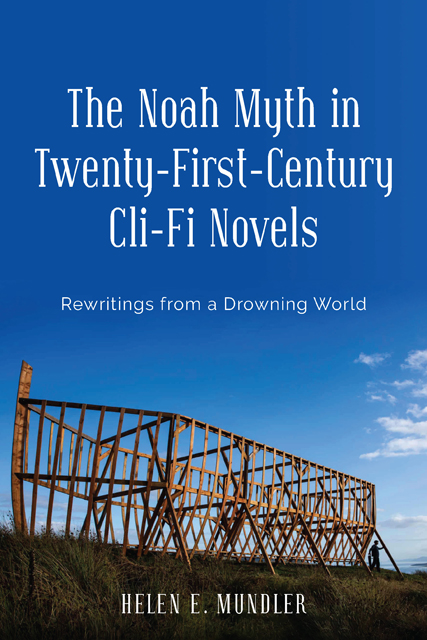Book contents
- Frontmatter
- Dedication
- Epigraph
- Contents
- Acknowledgments
- List of Abbreviations
- Introduction
- 1 An Odd Sort of Cli-Fi? Nathaniel Rich’s Odds Against Tomorrow
- 2 “Hadn’t mankind done it before—started from scratch?” Reinterpreting Visions of Past and Future in Margaret Atwood’s Maddaddam trilogy
- 3 Watering Down? Clare Morrall’s When the Floods Came
- 4 The Archive and After: A Kaleidoscopic Reading of Maggie Gee’s The Flood
- Conclusion
- Works Cited
- Index
1 - An Odd Sort of Cli-Fi? Nathaniel Rich’s Odds Against Tomorrow
Published online by Cambridge University Press: 17 December 2022
- Frontmatter
- Dedication
- Epigraph
- Contents
- Acknowledgments
- List of Abbreviations
- Introduction
- 1 An Odd Sort of Cli-Fi? Nathaniel Rich’s Odds Against Tomorrow
- 2 “Hadn’t mankind done it before—started from scratch?” Reinterpreting Visions of Past and Future in Margaret Atwood’s Maddaddam trilogy
- 3 Watering Down? Clare Morrall’s When the Floods Came
- 4 The Archive and After: A Kaleidoscopic Reading of Maggie Gee’s The Flood
- Conclusion
- Works Cited
- Index
Summary
“How vast a nightmare could he imagine?” Introducing Mitchell Zukor
Nathaniel Rich’s Odds Against Tomorrow, published in 2013, is, like all the novels discussed in this book, a loose and allusive rewriting of the Noah myth, in which a flood plays a central part. In the mode of black comedy, and ostensibly through the eyes of a fellow student, it tells the story of Mitchell Zukor, a “quant,” or geek, and recent university graduate. The undergraduate Mitchell is introduced as a person with widespread and intense fears, and indeed he lives in a world inclined to catastrophe: the novel opens on a severe earthquake in Puget Sound, Seattle which causes so much damage that it looks set to break the state’s insurers. Mitchell is also a hypochondriac, but his hypochondria is cured in a strange way: when he learns that a fellow student named Elsa Bruner is a “walking worst-case scenario” (Odds, 10) in that she suffers from Brugada syndrome, a condition which means she could die of heart failure at any moment, and yet that she does not seem to be afraid (Odds, 82), he finds that his fear of bodily ills disappears. Mitchell uses Elsa as a paradoxical beast of burden that unwittingly carries his own fear—the beginning of a relationship that becomes very important as the novel develops, in spite of the fact that the two characters never come to know each other well.
While Elsa drops out of university and starts “a co-operative farm in Maine” in a place called Camp Ticonderoga (Odds, 11), Mitchell moves to New York after graduation to work in the financial sector, a choice of which his father, Tibor, a Hungarian immigrant to the USA and “slumlord,” who is unashamed of his pursuit of money, approves (“The moral of the Hungarian Revolution: Greed is Good,” reflects Mitchell, Odds, 206). Elsa occasionally writes to Mitchell, and he imagines her existence as a bucolic idyll, in contrast with the frenetic, urban, money-driven life he himself pursues.
After graduation, Mitchell is first taken on by an insurance company called Fitzsimmons Sherman, which aims to create a fear of possible future disasters in order to increase its profits.
- Type
- Chapter
- Information
- The Noah Myth in Twenty-First-Century Cli-Fi NovelsRewritings from a Drowning World, pp. 13 - 36Publisher: Boydell & BrewerPrint publication year: 2022



